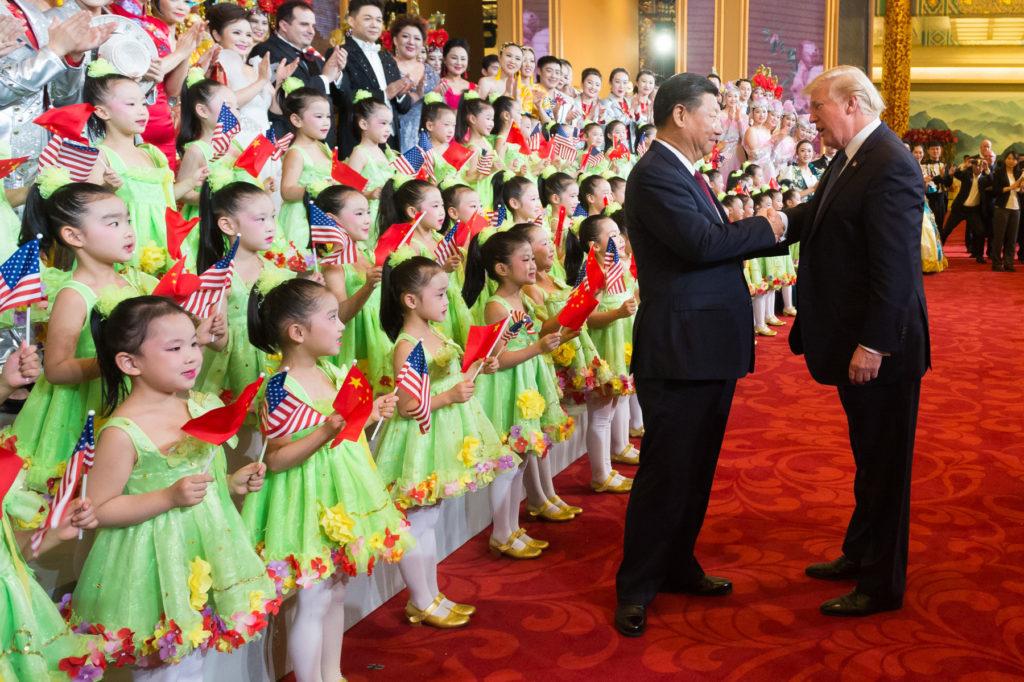
I remember a fear strategic thinkers had less than a decade ago was that the US and China would agree between themselves how they would share power and influence, and that they would govern the rest of us as a new G2.
It was an anxiety of US allies that this would lock us out of decision-making and have our fates, and those of other states and peoples, decided by the ‘Big Two’. This was the ‘new type of great power relations’ that Xi Jinping said he was offering to the US under Barack Obama.
Whether that was ever what the Chinese Communist Party leadership in Beijing actually proposed to do maybe doesn’t matter so much now. The idea of the ‘Big Two’ ruling together seems a distant possibility just a few years on.
But even the notion of either of these states ‘ruling’ now looks bad for the rest of us, and in similar ways. For all their differences, the current leaders in Beijing and Washington have a disturbing psychology and outlook in common. Xi’s China and Donald Trump’s America are both great powers and both leaders see their countries and peoples as victims of the external world.
For Xi and the CCP, China is a nation that experienced a century of humiliation at the hands of stronger, more technologically advanced Western powers. Even now, with the Chinese economy big enough and the military now more than strong enough to feel secure, Beijing’s leaders feel sufficiently threatened and victimised that they’re acting coercively and aggressively—as we see in the militarisation and aggression by the PLA in the South China Sea. And all the while they’re telling the international community that this aggression is ‘defensive’.
For the Trump administration, with Trump himself being its embodiment, it’s all about others taking advantage of America, stealing its wealth, impoverishing and imperilling its people. He’s mad as hell about this and channels the anger of his base in rallies across America. ‘America First’ is all about the US ending an era of others exploiting the great nation.
Trump notes the costs to the US treasury from America’s engagement with the UN, presence in South Korea and contributions to NATO, while discounting the value of the global leadership that this engagement has brought to the US.
America has never been wealthier or more powerful than it is today. And yet America is a victim of the external world—whether of US allies like Japan, Canada, Germany or NATO more generally, or of its actual strategic adversaries, Russia and China.
Xi’s CCP state and Trump’s America First state are both acting out their psychologies as ‘powerful victims’.
Xi is overreaching by demonstrating the coercive way that a more powerful Chinese state intends to behave—showing that its Belt and Road infrastructure vision comes both laden with pitfalls for recipient governments and packaged with export of China’s model of authoritarian control through its Digital Silk Road elements.
The PLA—‘the Party’s Army’ in CCP literature—is similarly overreaching and revealing its willingness to escalate disputes (the USS Decatur incident in the South China Sea is the most recent example) and project power internationally where the CCP sees Chinese interests as threatened.
The US administration’s multibillion-dollar tariffs on Chinese exports are a solution to a problem, although just what problem is unclear. They are not a way of engaging with the CCP to change the root causes of Chinese economic policy, regulatory policy and practice, or cyber theft. Similarly, loud stump speeches criticising China like we saw from Vice President Mike Pence, when not backed up with a plan of action agreed with a coalition of states—built around US allies—will likely just be words mixed with US unilateralism.
At some point, America will probably rediscover the power of its alliance system and the value of working with allies and ‘like-minded’ partners—strategically and economically—although the America that emerges from the current period of leadership will be a changed country.
The root causes behind Beijing’s increasingly coercive use of power relate to the nature of Xi’s Communist Party, notably its own sense of victimhood and endless struggle to maintain power against domestic and foreign enemies.
Engaging with and changing the CCP’s deep-seated approach to its own people and to its external world will require a much deeper understanding of the nature and anxieties of the party than we’ve heard to date from America’s policymakers and current leader (and from many other world leaders). And it will require finding ways to connect with the 1.3 billion people in China despite the CCP’s ruthless censorship controls.
At its core, this isn’t actually about economics; and while it is about strategy, it’s also as much about sociology, psychology and political history.
So we’ve got the Big Two behaving like victims, while actually being great powers. Nations with a victim mentality that possess the wealth, reach and weapons of great powers are dangerous beasts.
We can’t wait for either of these two to lead us. It’s up to the rest of us to work this out. Maybe the US and China should start to consider the prospect of a world where multipolarity becomes real precisely because of their failures.